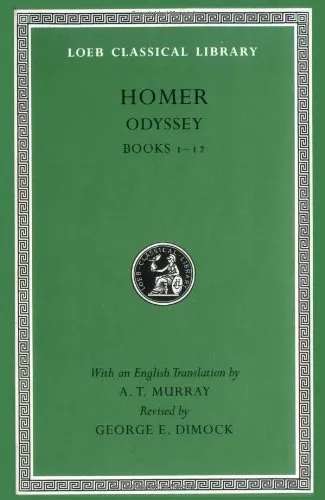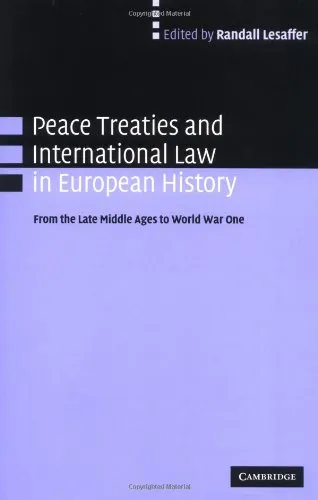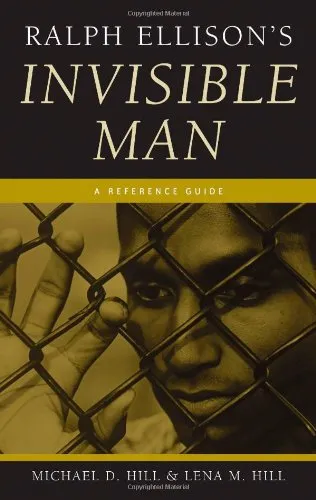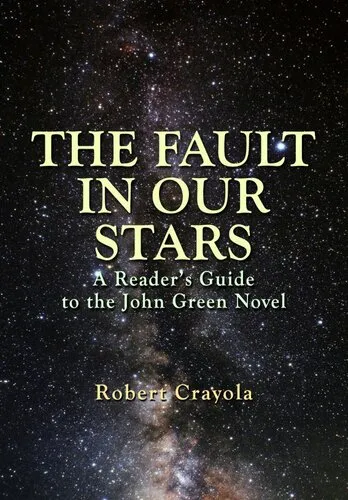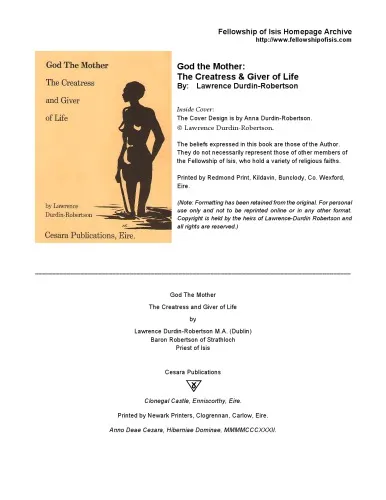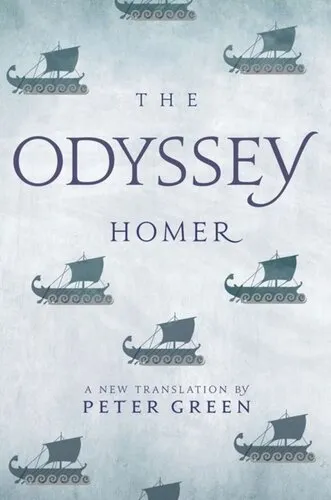Homer: The Odyssey: Books 1-12
3.5
Reviews from our users

You Can Ask your questions from this book's AI after Login
Each download or ask from book AI costs 2 points. To earn more free points, please visit the Points Guide Page and complete some valuable actions.Related Refrences:
Persian Summary
Introduction to 'Homer: The Odyssey: Books 1-12'
The epic tale of 'The Odyssey' holds a prominent place in the annals of classical literature and has captivated the imagination of readers for generations. 'Homer: The Odyssey: Books 1-12', as translated by George E. Dimock and A. T. Murray, offers a modern and insightful translation of the first half of this timeless narrative. This edition marries scholarly insight with literary elegance, making it both accessible to new readers and enriching for seasoned devotees of Homer.
Detailed Summary of the Book
The Odyssey begins in the aftermath of the Trojan War, focusing on the tumultuous journey of the protagonist, Odysseus, as he strives to return home to Ithaca. These first twelve books lay the foundation for Odysseus's adventures and challenges. The tale opens with the gods discussing Odysseus's fate. His son, Telemachus, grows into a man in his father's absence, embarking on his own quest to uncover news of Odysseus.
We witness the trials and tribulations faced by Odysseus, including his encounters with mythical creatures, like the Cyclops Polyphemus, and divine beings, such as the benevolent goddess Athena and the vengeful Poseidon. Each encounter tests his wit, courage, and resolve, illuminating the hero's distinct characteristics. Beyond mere adventure, these books explore human weaknesses, the notion of heroism, and the enduring power of intelligence over brute strength. Themes of loyalty, perseverance, and the struggle between fate and free will are intricately woven into this epic tapestry.
Key Takeaways
- Enduring Human Spirit: Odysseus's journey is a testament to human resilience and the relentless pursuit of one's goals against overwhelming odds.
- Complex Characterization: Homer’s characters, from hero to villain, are complex and richly drawn, reflecting the multifaceted nature of humanity.
- Interplay of Mortal and Divine: The interaction between gods and humans highlights ancient beliefs about divine influence and human agency.
- Political and Social Commentary: Themes related to governance and societal roles emerge as Telemachus deals with the chaos wrought by his father's absence.
Famous Quotes from the Book
Homer’s prose is filled with enduring wisdom and poignant reflections. Here are a few notable lines:
"There is a time for many words, and there is also a time for sleep."
"Be strong, saith my heart; I am a soldier; I have seen worse sights than this."
Why This Book Matters
‘The Odyssey’ is not just a story of ancient heroism; it is a narrative that explores eternal truths about the human condition. George E. Dimock and A. T. Murray’s translation of Books 1-12 offers significant insight into the complexities of Homeric Greek, sublime storytelling, and its intricacies of meter and style. These traits not only bridge the past and present but also provide modern readers a lens into ancient Greek culture and thought.
Moreover, the tale's influence on Western literature is immeasurable, serving as a source of inspiration for countless works across multiple disciplines. 'The Odyssey' teaches that the journey itself is as valuable as the destination, a concept that resonates with readers navigating their own life's odyssey. Its enduring legacy is a testament to its profound influence and the timeless nature of Homer’s insight into the human psyche.
Free Direct Download
You Can Download this book after Login
Accessing books through legal platforms and public libraries not only supports the rights of authors and publishers but also contributes to the sustainability of reading culture. Before downloading, please take a moment to consider these options.
Find this book on other platforms:
WorldCat helps you find books in libraries worldwide.
See ratings, reviews, and discussions on Goodreads.
Find and buy rare or used books on AbeBooks.
1477
بازدید3.5
امتیاز0
نظر98%
رضایتReviews:
3.5
Based on 0 users review
Questions & Answers
Ask questions about this book or help others by answering
No questions yet. Be the first to ask!
